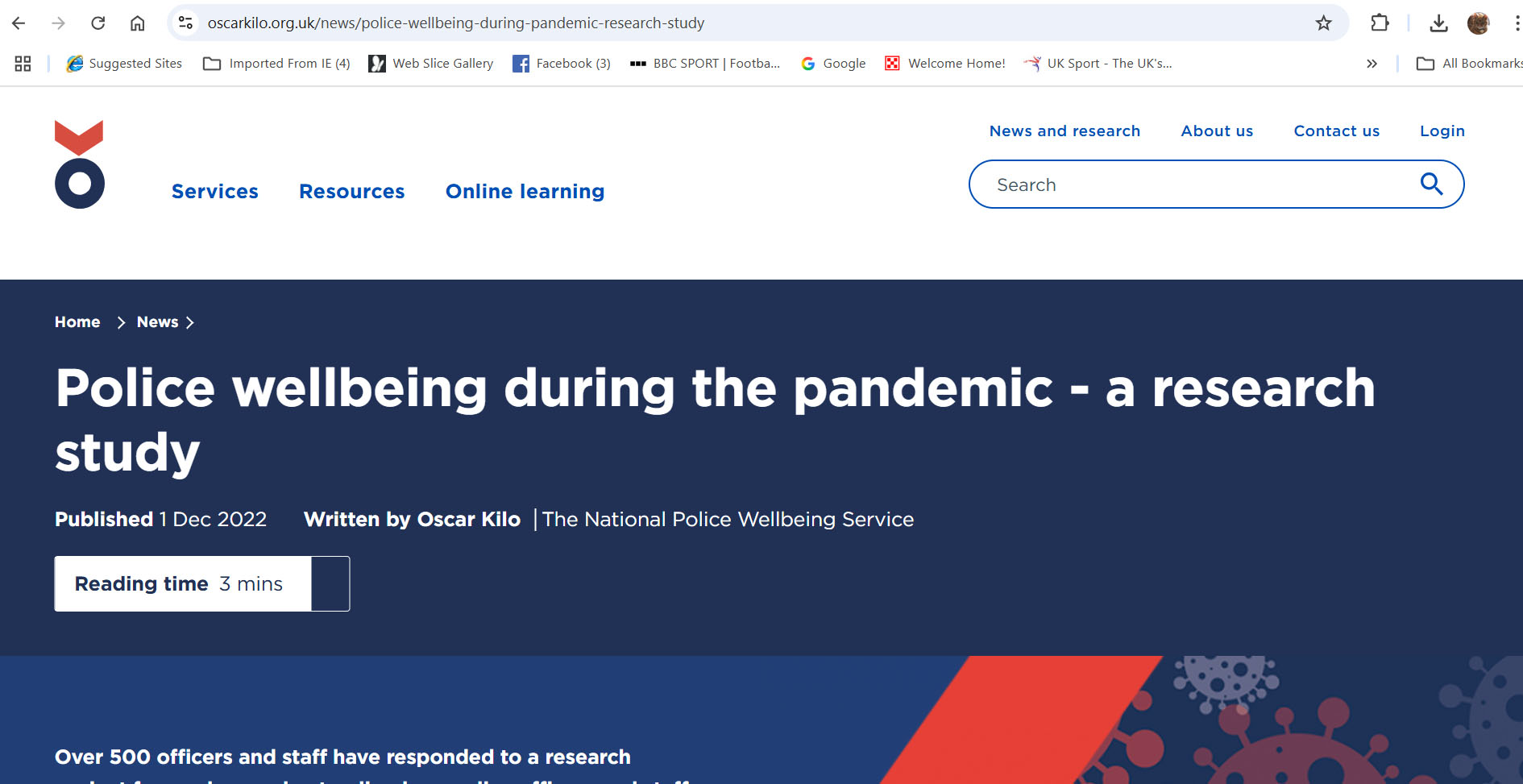Centre’s 30 years of practical police and crime prevention research

Researchers at the University of Huddersfield’s Crime and Policing Research Centre are continuing the Centre’s 30-year legacy of practically-focused research with and on behalf of police.
The centre also advises on practical crime prevention, building upon strong ties with local police and other agencies.
Started by Professor Ken Pease as the Applied Criminology Group in the early 1990s, the Centre has evolved through several iterations and now, under Professor Jason Roach, it continues to take a problem-solving approach to tackling important issues faced by police and other criminal justice agencies on a daily basis.
Officer wellbeing in focus
Research projects in the Centre currently funded by UK police forces include maintaining the wellbeing of Police Family Liaison Officers, reducing domestic violence and reducing student burglary victimisation in Manchester.
The Crime and Policing Research Centre has more than 20 staff members working on many different areas of policing, crime and criminal justice, including youth crime, prisons and stalking. There are also over 30 PhD researchers working a range of projects, with a strong research focus on improving the health and wellbeing of police officers, described by Professor Roach as one of the most important areas of policing that he has worked on.
“Twenty years ago, it was often a case of research being done to police officers by academics, rather than with police officers,” says Jason, Professor of Psychology and Policing.
“Strong working relationships with police and criminal justice agencies have changed this and now, although there is still some wariness, the relationship between the police and academia in particular is much better, based on mutual trust and co-operation to reduce crime and enhance policing in the UK.

Professor Jason Roach
Director, Crime and Policing Research Centre
We conduct real-world research which helps police and other partners to reduce the impact of specific crime and disorder problems which blight our society, such as the effects of serious and organised crime, domestic violence and homicide.
“We are extremely active in embedding our research within agencies, going back to when the Applied Criminology Group was based at Kirkburton police station near Huddersfield. I have a ‘hot-desking’ arrangement at Huddersfield and Halifax police stations which affords me opportunities to see the problems and challenges faced by police today, and to produce practically focused and tested research solutions.
“Our approach has always been to provide practical research to solve crime and policing problems, helping the police and other criminal justice agencies on the ground.”
Traumatic cases take their toll on officers
It was while conducting research with West Yorkshire Police’s Homicide and Major Enquiry team a decade ago that Jason realised there was a need for further investigation of wellbeing for police officers to support detectives working in often emotionally and psychologically demanding homicide investigations. The success of the Centre’s work on the issue has led to resources available for officers on the Oscar Kilo website dedicated to police wellbeing, as well as changes to policy across many police forces.
“It was observing officers working on one particularly traumatic case of child homicide that I could see how it was affecting the officers working on it,” he adds. “I asked how they dealt with such investigations involving such distressing cases, and their responses were along the lines of, ‘I just go home and shut myself off’.
“I know from working in psychiatric hospitals and mental health hostels that you cannot shut these things out completely and forever. This prompted me to think about police wellbeing, and how as a psychologist and researcher we could help.
“Ten years ago, the common attitude of police was to just get on with it. I felt that there should be support for these people doing difficult jobs, and at around this time the police wellbeing service’s Oscar Kilo site was being established so our research began at a good time.
“The wellbeing of officers began to be seen as important, due to police officer burnout, retention rates and how it might affect recruitment. After conducting a survey of police homicide investigators in 2015, we found that detectives were coping – but only just. There was an expectation that if an officer could cope with one child homicide, they could cope with the next one but my worry was about the cumulative effect which may not manifest itself straight away.”
Several projects undertaken by the Centre have resulted in resources made available on Oscar Kilo, including a study into the impact of the Covid-19 pandemic on police wellbeing.
“We have had many police officers and police staff successfully complete PhDs with us over the years, not just based in UK poling but also from Australia and the USA. from Police Sergeants to Detective Chief Superintendents. We currently have three PhD students in particular, two of whom work in policing, researching what kind of interventions can be put in place or what kind of support can be given to officers to support their wellbeing.
“People are different, have different needs, and need different types of support, There’s no ‘one size fits all’ solution, so what we hope to help with is having a broad range of interventions and support for people when they feel they need help, one that suits them.
“Unfortunately, some police officers will feel that asking for help may result in a mark against them in their file, but the next stage of our research is to encourage them to have an open mind and seek help. It is the most impactful research we have worked on.”

Professor Roach was recently joined by three new Deputy Directors: Dr Ashley Cartwright (leading on staff research), Dr Kathryn Sharratt (leading on external bids) and Dr Vickie Barrett ) leading on postgraduate student research).
”We have now strengthened the leadership of the CPRC not only to better co-ordinate our research, but also to improve focus on increasing the generation of external funding and to produce more high-quality, collaborative publications with police officers.
“Both are important to the University strategy going forward. Members have produced numerous high-quality Impact Case Studies for previous cycles of the Research Excellence Framework (REF), and the Centre plans to continue that by producing submissions on Self-Selection Policing and Police Wellbeing to the next REF in 2029.”
Professor Roach hopes that the Crime and Policing Research Centre will continue to make the university proud by providing a valuable research and consultancy service for police, criminal justice, and support agencies for at least another 30 years.
The Centre is currently working with half a dozen different UK police forces on numerous crime related projects, and with the National Police Chiefs’ Council on the use and efficacy of Serious Crime Prevention Orders as a means of disrupting those in organised crime groups.
The Centre will co-host the Society of Evidence-Based Policing Annual conference in September this year, which will see attendees from academia and policing from all over the world gathering at the university.
Photo of police officer by King's Church International on Unsplash